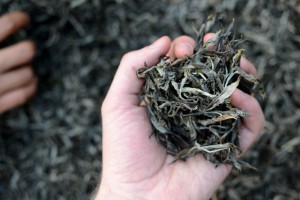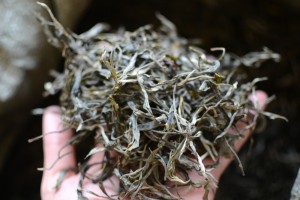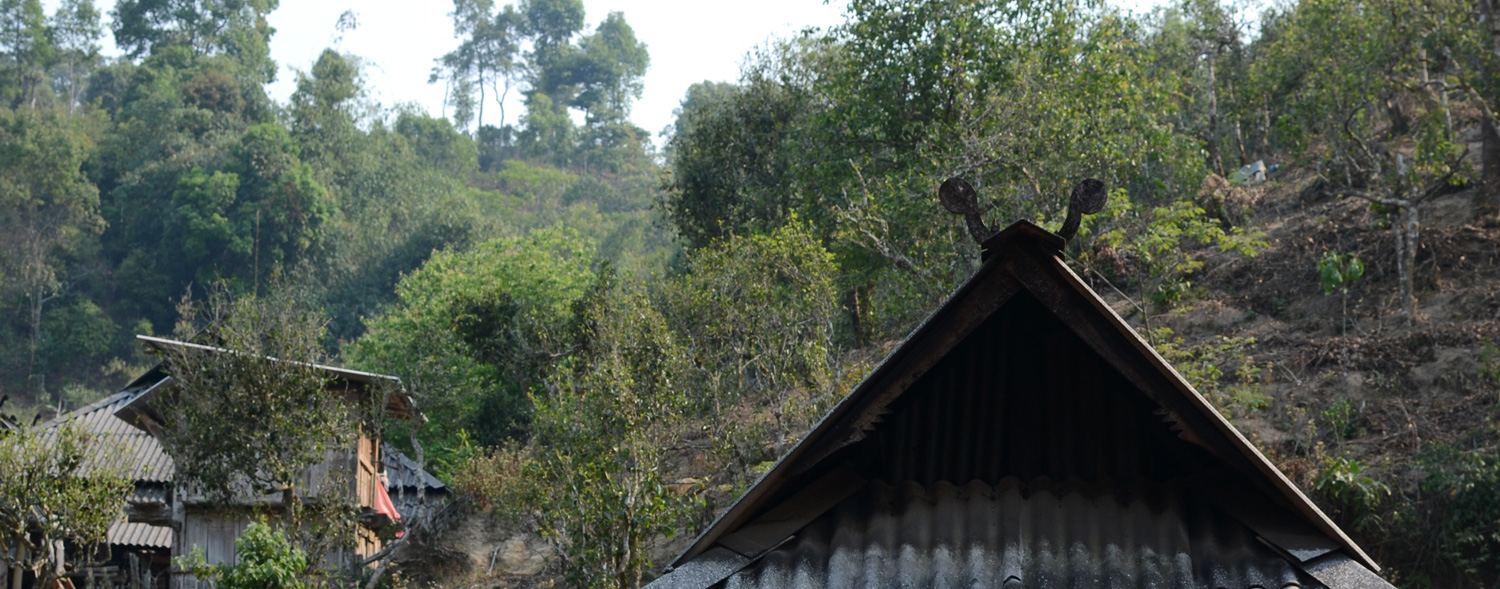Advice on What Tea to Buy in China
A common question I see asked on tea forums goes something like this, “My great aunt Hortense is going to China. I like tea. What tea should I have her bring back from China?”
My stock answer, “Probably none.”
This makes a lot of people angry. They want tea from the source. If they are going to China, shouldn’t they get some tea? In a perfect world, they certainly should. But alas, China and its tea markets are not a utopia.

The Exceptions
First, let me qualify the above “Probably” with a few ifs and maybes. There are a few circumstances where you can correctly throw my advice out the window. If you or your relative:
- Speak fluent Mandarin
- Have the name/address of a trustworthy vendor
- Know tea prices and quality well enough to avoid being duped
- Don’t care about the quality of your tea
- Don’t care how much you pay for said tea
- You think I am an idiot and read my blog only to fuel your hatred
In these cases, maybe my advice is useless to you, but keep reading anyway – you are here and all.

So, Why Shouldn’t I Buy Tea in China?
First, full disclosure, I sell tea. I just wanted to get that out of the way. This article is not a devious plot to discourage people to buy tea in China and instead from vendors like myself. Rather it is me sharing of my own knowledge and experience after 8 years in China drinking puer. Take it how you will.
So, there are few broad reasons why buying in China is rife with peril. Here is a short, non-exhaustive list:
- Small tea shops and wholesale markets are often middle men with a limited knowledge of tea
- It is difficult to discern the “true” price of tea, even if you are an experienced buyer
- There is a lot of tea with dangerous chemicals and processing and very little regulation of either
- Many tea sellers do not know the source of their tea
I mentioned in my article about three strange things in Yunnan a man from Henan province who was a tea seller. He has a stall at a Henan wholesale tea market and was making a journey to buy puer. His non-stop commentary led me to believe he knew nothing at all about puer tea or tea in general. After we embarked on a trip to a tea mountain, he proceeded to start pointing at huge trees and saying, “Wow, look at that tea tree!” These were of course not tea trees at all, just giant trees. Anyone who has seen a tea tree wouldn’t have made such an error. The point is not that you need to have seen or touched tea trees to understand tea (though it helps), but that this is the person in charge of distributing tea (and the knowledge of said tea) to smaller tea shops in his area. Imagine playing the game telephone. One person whispers into another persons ear, on down the line with several links in between you and the message. Now imagine the people in between you and the message barely have an understanding of the language of tea. It would be easy to purchase a cake of puer tea from a random small shop and be completely misinformed about its origin, quality, or price. After all, the small shop owner might have bought from this fellow from Hennan, who fed them faulty information from the starting line.
One more anecdotal story, in Yunnan this Spring I also encountered a couple who were purchasing tea for their small shop. They similarly knew almost nothing about tea. Their only goal and motive was to purchase the cheapest tea they could and mark it up and call it something else. They would ask questions like, “Would this pass for Laobanzhang? How much could I sell this for?” These people own a tea shop. Your great Aunt Hortense might stumble into their trap. Which brings us to the next point, if your kindly old auntie wanders into a shop like this, then what? If they offer her 10 grades of oolong tea, will she be able to determine a fair price? Or will she be at the mercy of people who are trying to make the biggest possible margin on their already shitty product? As if this situation weren’t hopeless enough, if you throw in a language barrier and a tourist with no tea knowledge, you are just begging to be swindled.
The third issue is safety. Eugene from Teaurchin recently wrote a post on his tea blog on the subject of pesticides, and I encourage you to read it. Keep in mind, he is mostly discussing gushu [old tree] puer, which is on the low end of the list of concerns in my book. If you want to be appalled at pesticide spraying, visit terraced bush tea areas in Fujian province. Even a careful vendor has a lot of guessing to do about chemical use and finding safe teas. I won’t speculate on specifics, but if somebody who doesn’t know much about tea gifts me neon green tieguanyin [Iron Buddha Oolong] I refuse to drink it. It ends up in the trash bin. Apologies to anyone who gifted me tieguanyin and reads my blog,…I surely drank yours. I am referring to everyone else.
Which brings us round full circle to the last concern on my list, the origin of a tea. I outlined a typical supply chain in my post on packaging. The quick and dirty version is that between the tea farmer and the final seller there are several links in the supply chain. In many cases, a seller might not know the exact origin of the tea they are selling. This becomes an issue with both safety and price. And if the seller is unclear on the specific details of origin, what chance does your surrogate buyer have? Hopefully your visiting relative has something more to inform their decision than a glittery puer cake labeled Yiwu Tea King.

You Shat on my Dream of Buying Tea in China, What Now?
My advice would be to buy from a person who is based in China and cares about the tea they source and sell. Shameless plug, you can buy from me at White 2 Tea. Honorable plug (and suspect business decision; please, buy from my competitors!), you can buy from Eugene at Teaurchin or Scott from Yunnan Sourcing. These are vendors who have a lot of experience with tea in China, and live here full time. If you are a gambler, take your chances at a random shop, but you will probably save money and get better tea buying from a China based Western vendor.

